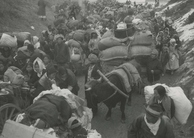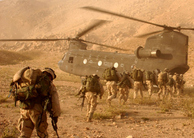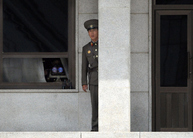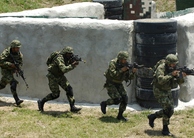|
International Affairs
Page 16/27 | Showing results 226 - 240 of 393
2012, Vol. 4 No. 02
Climate change negotiations have been on the international stage for almost four decades. They have a complex history, and act as a comprehensive example of the many variables, obstacles, environments, and processes that can affect any international... Read Article »
2012, Vol. 2011/2012 No. 2
During the armed conflict to topple Muammar Gaddafi in Libya, a common question for observers was “who are the Libyan opposition?” Indeed, for one scholar this was the ‘billion dollar question’,1 and, in the United States... Read Article »
2012, Vol. 2011/2012 No. 2
The strict regulations for immigration fuels the smuggling of irregular migrants, however, amongst the irregular migrants are genuine asylum seekers in search of protection. If party to the Convention Relating to the Status of Refugees,1 States... Read Article »
2011, Vol. 3 No. 12
The rise of superbrands has many implications for the nature of work, workers, and organizations. This paper explores superbrands and their impact in three ways. First, the dynamics of the superbrand Nike, along with the implications of Nike as... Read Article »
2011, Vol. 3 No. 12
The political history of the Middle East is a complex story wrought with instability, conflict, religious and ethnic cleavages, and artificial imperial and colonial borders. These challenges manifest themselves in varied political systems, norms... Read Article »
2011, Vol. 3 No. 12
As we move from Fordism to Post-Fordism and from Industrialism to Post-Industrialism, the new Market that prevails under Globalization implies many changes to the nature of work and organizations. This new Market dictates, or rather governs, the... Read Article »
2011, Vol. 3 No. 12
As we move from Fordism to Post-Fordism and from Industrialism to Post-Industrialism, the new Market that prevails under Globalization implies many changes to the nature of work and organizations. This new Market dictates, or rather governs, the... Read Article »
2011, Vol. 5 No. 1
When should the United States intervene militarily in weak countries? This is a topic of pressing international concern because the United States keeps intervening in weak countries. We are currently involved indirectly in Libya and very deeply... Read Article »
2011, Vol. 5 No. 1
Elyès Jouini is the vice-president for research of Université Paris-Dauphine and former Minister for the Economic and Social Reforms of the Tunisian transition government. He currently serves as the President of the Fondation Paris... Read Article »
2011, Vol. 5 No. 1
Over the past thirty years, China has moved from a communist to a capitalist economy. This change has pushed millions of young, rural women to migrate to the cities in order to begin working in its many booming factories. These women, if they manage... Read Article »
2011, Vol. 5 No. 1
Wael Ghonim, a 30-year-old Egyptian who works as an executive for Google, enjoyed a house in the United Arab Emirates with a pool and a nice car. But when news of the Egyptian protests reached him in January 2011, he anonymously started a Facebook... Read Article »
2011, Vol. 5 No. 1
In 2001, Goldman Sachs named Brazil one of the four most important emerging economies, with China, Russia and India.1 The BRICs, a term coined by Jim O’Neill, are prophesized to become four of the top six economies in the world by 2050,2 and... Read Article »
2011, Vol. 5 No. 1
In the Hermit Kingdom, information is a crucial resource. Its possession represents access to resource and weapons development techniques, but more importantly, information is what separates North Korean society from the rest of the world. Since... Read Article »
2011, Vol. 5 No. 1
As of September 2011, the United States was involved, at different levels, in military operations in Afghanistan, Iraq, Libya, Yemen and Somalia. America has more than 700 military installations overseas , and its military expenses account for almost... Read Article »
2011, Vol. 5 No. 1
The US has increasingly turned to using the military to administer humanitarian aid in recent years. This process has come under attack from many academics and foreign officials. Using action in Colombia from 1999 to present as a case study, this... Read Article »

Expedited Article Review
Submit an article and get a decision fast.
If you need a fast decision, INQUIRIES Journal offers expedited processing of your submission for a small fee. Depending on the expedited review option you choose, you can receive a decision in as few as 5-days.
In addition to a shorter review period, the fee supports the journal's continued operation and open-access publishing model. Standard submissions are always free. Submit Now » - Submit an Article to Inquiries Journal -
|












